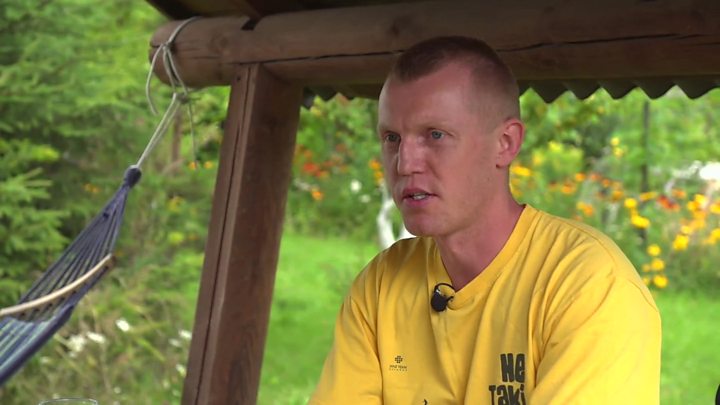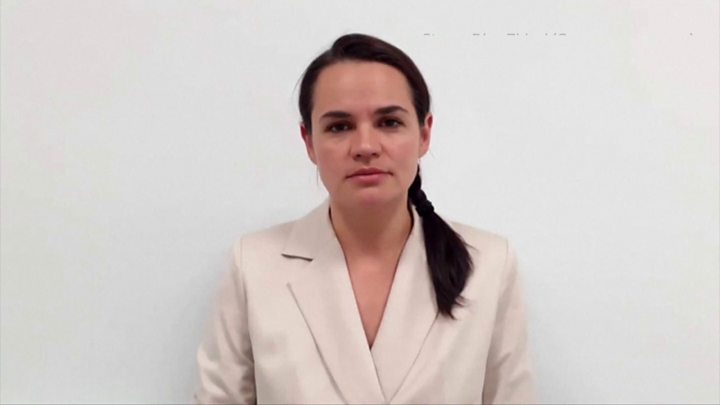What's happening in Belarus?

Belarus has been shaken for days by widespread mass protests, triggered by an election which was widely thought to be rigged massively in favour of the incumbent, longtime leader Alexander Lukashenko.
After a week that's seen violent clashes with opposition demonstrators, numerous allegations of police brutality, processions of women in white with roses and walkouts at major state enterprises, let's take a look at how all this came about.
What was the pre-election situation?
Europe's longest-serving ruler, President Lukashenko has been in charge of Belarus for 26 years, coming to power amid the chaos caused by the collapse of the Soviet Union just a few years earlier.
Always seen as an autocrat, he has tried to preserve elements of Soviet communism. Much of manufacturing has been under the control of state-owned enterprises, and main media channels have been loyal to the government. The powerful secret police is even still called the KGB.
At the same time Mr Lukashenko has tried to style himself as a tough nationalist with a direct manner defending his country from malign foreign influences, and a guarantor of stability.
These factors have meant that the long-time leader has until now commanded public support, though elections under his rule have never been considered free or fair.
But the way he is perceived has changed in recent months. Opposition politicians have noticed a shift in mood, with people complaining of pervasive corruption and poverty, a lack of opportunity and low pay.
This was compounded by the coronavirus crisis.
Opponents consider Mr Lukashenko's bravado about the virus - he suggested combating it with vodka, saunas and hard work - to be reckless and a sign that he is out of touch.
Then a crackdown on opponents ahead of the presidential election, with two opposition candidates jailed and another fleeing the country, led to the creation of a powerful coalition of three women closely involved in those campaigns.
What happened in the election?
One of the trio, Svetlana Tikhanovskaya, registered as a candidate in place of her arrested husband Sergey Tikhanovsky.
The 37-year-old and her two allies toured the country drawing record crowds of people frustrated by the lack of political change.
Voting day arrived amid widespread fears among the opposition about possible falsifications. With no independent observers invited, these fears seemed well-founded and numerous apparent irregularities were documented. An internet blackout began which lasted several days.
Polling closed and exit polls were released that closely resembled the results that were to be published the next day - suggesting that Mr Lukashenko had won with 80% of the vote. Ms Tikhanovskaya gained only about 10%, they said. Those results were later rubber-stamped by authorities, while the main opposition candidate insisted that where votes had been properly counted, she had polled 60-70%.
Disbelief and anger at what appeared to be quite brazen tampering with the results quickly spilled out onto the streets.
On the night after the election, violent clashes led to 3,000 arrests in Minsk and other cities. Police fired tear gas, rubber bullets and stun grenades, not seen before in Belarus, to disperse crowds.
Further nights of violence saw another 3,700 arrests throughout the country.
On the day after the election, Ms Tikhanovskaya tried to complain to election authorities about falsifications of the result. She was detained for seven hours and was forced to leave for Lithuania, where she had earlier sent her children.
In an emotional video address to supporters, she said she had overestimated her own strength and was leaving for the sake of her children.
How have the protests evolved?
But that was not the end of it. During the post-election clashes details emerged of alleged police brutality, with detainees badly beaten and forced to endure overcrowded jails.

Many sought medical help and posted pictures of their injuries on social media after they were released.
This produced a new wave of demonstrations. Friends and relatives gathered at detention centres demanding news about detainees, and women dressed in white carrying roses linked arms and marched through the streets.
At major state-owned enterprises around the country, workers sought answers from managers and local officials about election irregularities and treatment of protesters. Some called strikes and joined the protests.
Staff at the main state-owned media channel announced they were going on strike after several high-profile resignations, vowing to start reporting "the truth". Previously the channel had followed the government line on the elections and protests.
A number of officials, as well as current and former police officers, have resigned. The Belarusian ambassador to Slovakia, Igor Leshchenya, declared his solidarity with the protesters. The director of Belarus's leading football club dumped his old police uniform in the bin in disgust and international footballer Ilya Shkurin announced he would not play for his country until President Lukashenko stepped down.
Days after her emotional address to supporters, Svetlana Tikhanovskaya put forward concrete plans for a "co-ordinating council" to handle a transfer of power, which would be made up of "civil society activists, respected Belarusians and professionals".
She called for a weekend of peaceful rallies, and the latest protest on 16 August brought a mass of supporters to central Minsk, eclipsing a rally called by Mr Lukashenko's supporters on the same day.